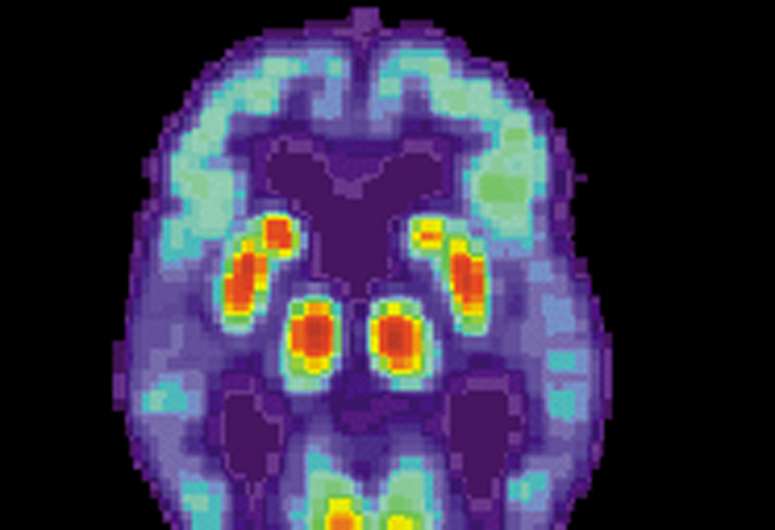PET scan of a human brain with Alzheimer's disease. Credit: public domain
Scientists led by a team in China have identified 10 risk factors for Alzheimer's disease. The 10 factors are diabetes, poor BMI, reduced education, high blood pressure in midlife, low blood pressure, head trauma, high levels of homocysteine, less cognitive activity, stress, and depression. Researchers published the findings today (Monday 20 July) in the Journal of Neurology, Neurosurgery & Psychiatry.
Dementia is caused by a number of physical brain diseases, the most common being Alzheimer's disease. Speaking about this study, Dr. Rosa Sancho, Head of Research at Alzheimer's Research UK, said:
"Diseases like Alzheimer's are caused by a complex mix of age, genetics and lifestyle. In 2017 a landmark report found nine modifiable risk factors for dementia and like that report, in this research, scientists reviewed findings from a large number of existing studies. Intriguingly they found that head trauma and high levels of a compound called homocysteine were associated with the risk of developing Alzheimer's disease. Identifying risk factors like this is an important starting point for further research into ways to limit their impact and help people live for longer free from dementia. There is still more to do when it comes to dementia prevention, with Alzheimer's Research UK's Dementia Attitudes Monitor showing just a third of people think it's possible to reduce their dementia risk. The best way to keep your brain healthy as you age is to stay physically and mentally active, eat a healthy balanced diet, not smoke, drink only within the recommended limits and keep weight, cholesterol and blood pressure in check."
More information: Jin-Tai Yu et al. Evidence-based prevention of Alzheimer's disease: systematic review and meta-analysis of 243 observational prospective studies and 153 randomized controlled trials, Journal of Neurology, Neurosurgery & Psychiatry (2020). DOI: 10.1136/jnnp-2019-321913
Provided by Alzheimer's Research UK
























